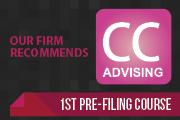Filing Chapter 13 Bankruptcy in Rhode Island and Massachusetts
Chapter 13 bankruptcy gives you breathing room to get your financial life under control again. It's a good option for people who earn an income but who have gotten in over their heads with debt, usually credit card debt. It's often called a "wage earner's plan." (If you have insufficient income or your debts far exceed you ability to pay, Chapter 7 is the better option.)
Chapter 13 is a debt reorganization plan. The bankruptcy trustee looks at everything you owe and then comes up with a plan for how it can be paid off over three to five years. But Chapter 13 bankruptcy provides more benefits than simply paying off existing debts, it also:
- Stops creditor harassment. They can't contact you outside of bankruptcy court.
- Stops wage garnishment and bank account seizure.
- Reduces your overall debt; some of your debts may be cancelled outright; many will be reduced, sometimes to pennies on the dollar.
- Stops and sometimes removes fines and late fees that have accumulated on your existing debt so you won't get further behind.
- In some situations, filing for bankruptcy can stop a foreclosure proceeding, giving you time to renegotiate or restructure your mortgage.
Learn more about how filing Chapter 13 bankruptcy can help your situation. Contact the Rhode Island Chapter 13 bankruptcy attorneys at The Family and Consumer Law Center. Our lawyers work with clients throughout Rhode Island and southern Massachusetts. Call 401-728-6060 for a free initial consultation.
Personal Property in Chapter 13 Bankruptcy
In most cases, you can keep your property by signing a reaffirmation agreement with your creditors and continuing to make payments. While keeping up payments may have been impossible in the past, once your overall debt load is reduced, you may find that you now have enough available money to make your house or car payment. We will review any proposed agreement to see if it looks realistic.
What About Proceeds from a Lawsuit or Personal Injury Case?
If you receive a settlement from a personal injury lawsuit, a medical malpractice lawsuit, or some other lawsuit during the time that you are in Chapter 13 (which is three to five years), the bankruptcy trustee will almost always require that money to be turned over to pay creditors. Both state and federal bankruptcy law offers very low exemptions for settlement funds.
Don't let fear stop you from getting the facts about debt reorganization bankruptcy. Talk to an MA bankruptcy attorney and then decide. Contact our Pawtucket office or call us at 401-728-6060 (toll-free at 800-851-1829). We also have a satellite office in Providence.










